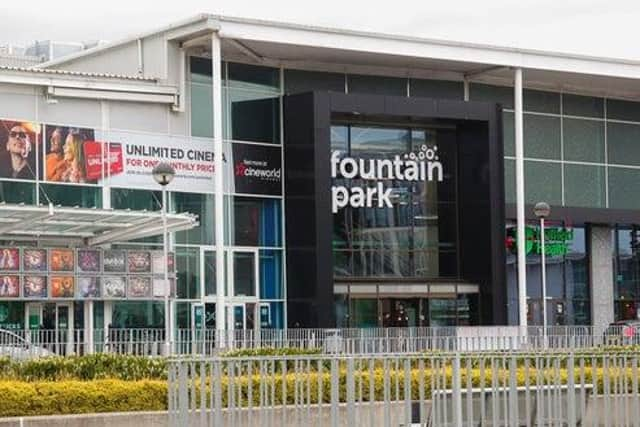The Cineworld shutdown is a chilling omen for the rest of the arts world – Brian Ferguson


When I first moved to the city to study, the Cameo was the first cultural venue I truly fell in love with.
Some 28 years later, a packed out sneak preview of Reservoir Dogs, in the presence of the then-unknown director Quentin Tarantino, is right up there as one of my most memorable events.
Advertisement
Hide AdAdvertisement
Hide AdThe Cameo quickly became one of my favourite haunts, its main auditorium feeling increasingly homely on each subsequent visit. I even had a favourite seat.
More than a decade on from that first visit, I covered the "Save the Cameo" campaign, which was launched to halt plans to turn its main auditorium into a bar and restaurant.
Its future only appeared secure when Historic Scotland upgraded the listed building status for the building, which dates back to 1914 and has been visited by Orson Welles, Clint Eastwood and – of course – Sir Sean Connery.
A wave of melancholy and nostalgia swept over me when I read the news that it would be closing its doors again, as part of the UK-wide shutdown of cinemas owned by the Cineworld chain.
But those feelings swiftly turned to fear for the future of other culture and entertainment sectors – and other much-loved venues like the Cameo.
More than 5,500 jobs have been put at risk by Cineworld's move to close all of its UK cinemas indefinitely.
Already crippled by the impact of social distancing restrictions and a lack of major new blockbusters being released by the leading studios, a six-month delay for the new James Bond movie appears to have been a deciding factor.
But at least cinemas have been able to trade in recent months.
Advertisement
Hide AdAdvertisement
Hide AdConcert venues, theatres and nightclubs across Scotland have been unable to operate since the shutdown of events in mid-March and thus unable to generate any of their normal income.
They have had to rely on public funding bail-outs and donations from supporters to keep afloat, while provisional dates for reopening have been kicked into the long grass by the coronavirus resurgence.
With new restrictions looming, it is increasingly hard to see a scenario where Scotland’s indoor music and theatre venues, some of which have been able to host the filming of performances, will actually be able to welcome back audiences before the spring.
And when they do eventually get that green light, how viable will it be for them to operate on a sound financial footing? Just as the cinema industry is unlikely to begin to recover without major new movies to showcase, audiences for other art forms will need compelling reasons to return.
It has been suggested that the only viable solution is to ensure a monumental bail-out for the entire cultural sector until social distancing is a thing of the past and a vaccine is fully rolled out. That seemed hopelessly unrealistic even before Chancellor Rishi Sunak suggested that musicians, artists and actors consider getting another job.
But it seems essential that substantial public funding is found to at least keep these industries ticking over and ensure that long-standing venues like the Cameo do not close for good.
A message from the Editor:
Thank you for reading this story on our website. While I have your attention, I also have an important request to make of you.
The dramatic events of 2020 are having a major impact on many of our advertisers - and consequently the revenue we receive. We are now more reliant than ever on you taking out a digital subscription to support our journalism.
Subscribe to scotsman.com and enjoy unlimited access to Scottish news and information online and on our app.
Visit www.scotsman.com/subscriptions now to sign up.
By supporting us, we are able to support you in providing trusted, fact-checked content for this website.
Joy Yates
Editorial Director
Comments
Want to join the conversation? Please or to comment on this article.